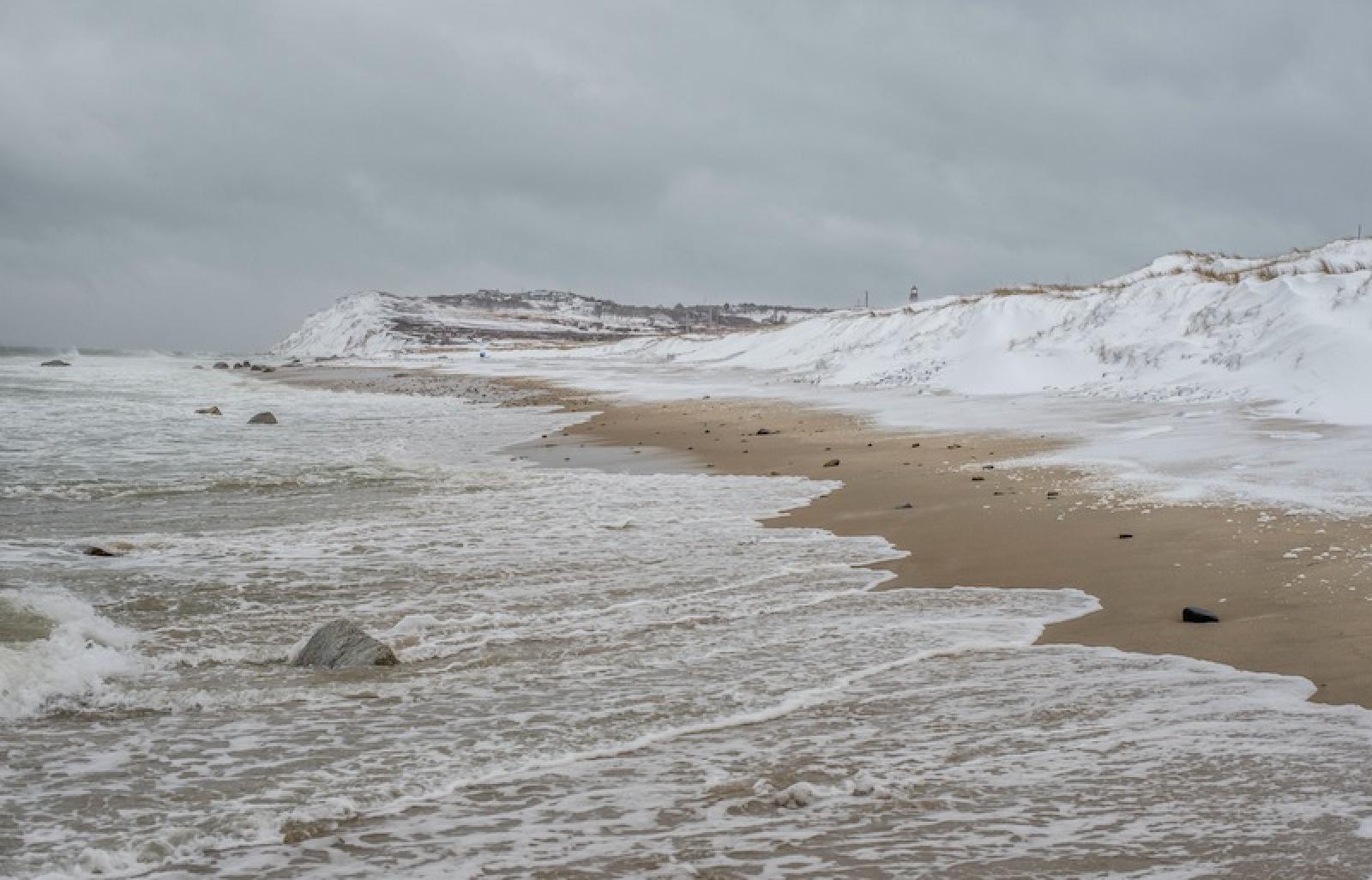From the Feb. 14, 1969 edition of the Vineyard Gazette:
Sunday and its experience so familiar in the lives of all Vineyarders through the generations that have known this Island since the Mayhews came in 1642 is again a reminder that we have one of the best places in which to look on at a great storm and to wait it out. For New York and cities inland and away, the driving northeaster with its unexpected 15 inches of snow will be memorable. Men and women will make its date a reference point as they did the blizzard of 1886. But for us the gale brought mostly a prodigious rainfall and a typical February storm that will merge into the established tradition of Vineyard winters.
Not that the experience was commonplace or without value; it reminded us that life consists of more than paying the oil bill or taking the packaged dinner out of the freezer. Many of us may easily neglect the more modest offering of other months and seasons, but the peremptory weekend storm asserted some eternal verities. The sea and the winds and an outer vastness are still the environment in which we live and with which we must come to terms when these appointments are fulfilled.
A meteorologist Monday morning said that if the great storm had contained a tropical relationship it would have been a hurricane; the tropical ingredient being absent, it was just — well, he said “nor’easter,” but he should have said “no’theaster” or “northeaster.” It’s something, one supposes, to learn that hurricanes can’t have snow.
Winter is not new to the Vineyard. When the blizzards come and seas roar on the beaches and boat schedules are suspended, we remain snugged down on our Island, in secure fealty to its resourceful and unconquered past.
Nathaniel Southgate Shaler of Harvard, whose devotion to the Vineyard lives on in Seven Gates Farm, found here “a seasonal condition akin to the Old World spring.” “Spring,” he wrote, “begins in February — the ferns awakening to the uplifting noonday sun within a month of the winter solstice.” It is gratifying to note that this view is being confirmed by no less reliable witnesses than the cardinals, those spectacular birds still relatively new in Island winters.
They have been singing on the Vineyard on sunlit February mornings, regardless of low temperatures and dates on the calender, and to hear their loud, clear whistles — “somewhat reedy,” one authority says — is to believe in the presence of spring against any other evidence.
Song sparrows sing in February, too, and we are always cheered by the first reports, especially if we can be ourselves the bearers of these tidings. Chickadees will sing in a blizzard, and though they are among the most durable and determined of nature’s optimists, they are not announcers of spring.
Is it better to hear a cardinal singing in February than to find the first mayflower or myrtle or even crocus which is due in certain places on Washington’s Birthday? Who can say?
Zoning is a wearisome subject, but it is also urgent. Perhaps nothing really new can be said about it, but whatever is said about it becomes new and immediate because of the challenges to which it applies. Some of these are only now coming into view, shadow-like, over the horizon; some are pressing against our interests and against our hopes. Some have swept on past, leaving disfigurement or lost values, tangible and intangible, as a legacy into far time.
Of the new-old or old-new things written about zoning, one of the wisest and nearest to sheer realism was contributed to the Gazette in August, 1963, by William A. Caldwell, New Jersey newspaper editor and seasonal resident of Katama.
The case of those who oppose planning and zoning, Mr. Caldwell wrote, “comes down, once they finish the ritualistic cursing and fist clenching, to a statement of one ideal: ‘We’re not going to have anybody coming in here and telling us what we can do with our property.’
“Right? Of course they’re right. There is utterly no rational rebuttal of this way of rephrasing the third inalienable right of the Declaration. And when men sit down to say, “This is how we like Our Town, and this is how it’ll look and feel and be tomorrow and tomorrow and tomorrow’ nobody’s telling them what they can or can’t do. They’re telling the world. What they’re telling is that there are certain things a shrewd and hostile world can’t do to them.”
And Mr. Caldwell went on to this statement of alternatives:
1. Either a town grows and develops according to its own plan, its own ideals and conscience or...
2. It will be developed according to the plans of people who have for it not affection and reverence but only contempt and an appetite.
Zoning? You know what you want, and you plan to keep it that way. And Mr. Caldwell added, “Tomorrow won’t wait.”
Compiled by Hilary Wall
library@mvgazette.com




Comments
Comment policy »